So, you want to be a freelance writer? If you’re anything like me, you may be feeling confused and overwhelmed. You’re asking yourself, “Where do I start?” “Which sites should I use?” Because let’s be real, freelance writing isn’t a “Do X and you’ll get Y result” field. It’s full of fumbling, failing, and falling until you find what works.
That’s what prompted me to put together this list. In the beginning of my own journey last spring, I wish there’d been a source to which I could turn in deciding where to begin, that laid out what I needed to know. So here are my top 13 resources for new freelance writers, ones I wish I’d known about when I first started out. Some of these you may have heard of, and others may be utterly novel. Regardless, they’ve helped me progress in my career and build my brand, and I hope they do the same for you!
1. Medium
Used by novice and seasoned writers alike, Medium is an excellent platform through which you can publish your work, connect with like-minded writers, and practice your writing skills. For a $5 monthly fee, you can become a part of their Partner Program, making you eligible to earn money for your writing based on views and interactions.
Now, unless you’re publishing consistently and manage to stand out above the rest, you’re unlikely to make much. I usually get a few bucks a month, but it’s been priceless in that I’ve made several online friends and developed impenetrable confidence during my time on Medium. You can publish your stories within one of the platform’s many publications, or on your own feed, and read superb writing in topics ranging from personal finance to dating advice.
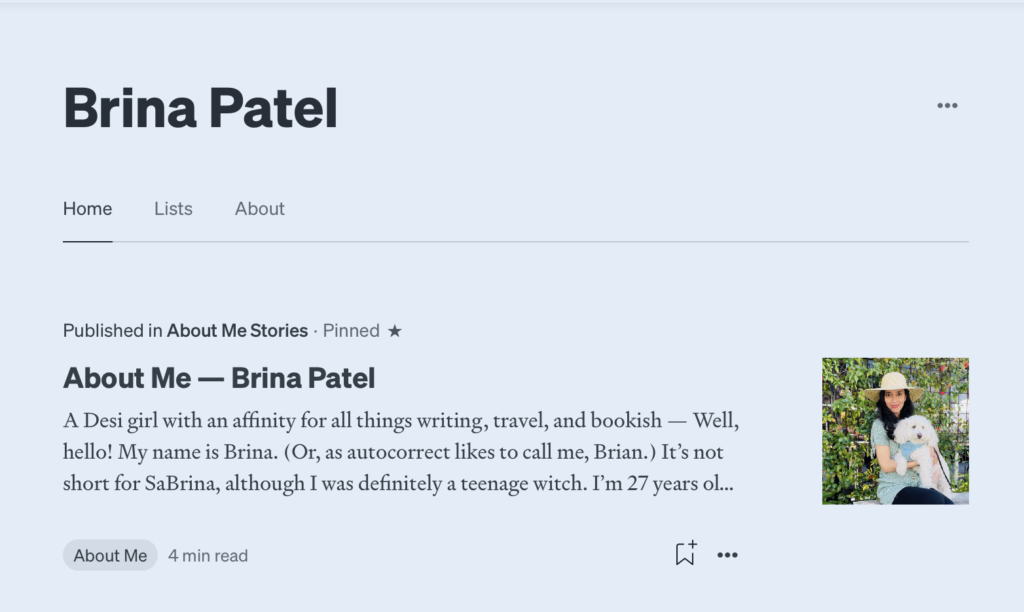
2. Opportunities of the Week Newsletter
Wouldn’t it be nice if there was one place that listed all of the open freelance gigs? (That isn’t Fiverr or Upwork.) Good news— there is! Seasoned freelance writer Sonia Weiser combs through Twitter postings twice a week and delivers calls for pitches, paid literary magazine submissions, and writing-related job postings straight to your inbox. She does charge a $4 monthly fee via Patreon, but in my experience, if you sift through the posts and apply to the ones you’re qualified for, this pays for itself.
In fact, I’ve gotten two of my biggest gigs to date—with Verywell Mind and Insider— through Sonia’s newsletter!
3. Twitter
I used to think Twitter was pointless. I mean, who would want to use an app in which you only get 280 characters per post? Hundreds of millions of people, actually. And many of them are writers, editors, and journalists.
You can search for hashtags like #writingcommunity to make your posts visible, or participate in a #writerslift. Your Tweets needn’t be profound or pee-your-pants hilarious (bonus points if they are, though). Like any other social media endeavor, consistency is key to building a following and getting your message in front of as many eyes as possible. And don’t forget to optimize your bio to highlight your bylines, jobs, and any features that point to your unique attributes as a writer.
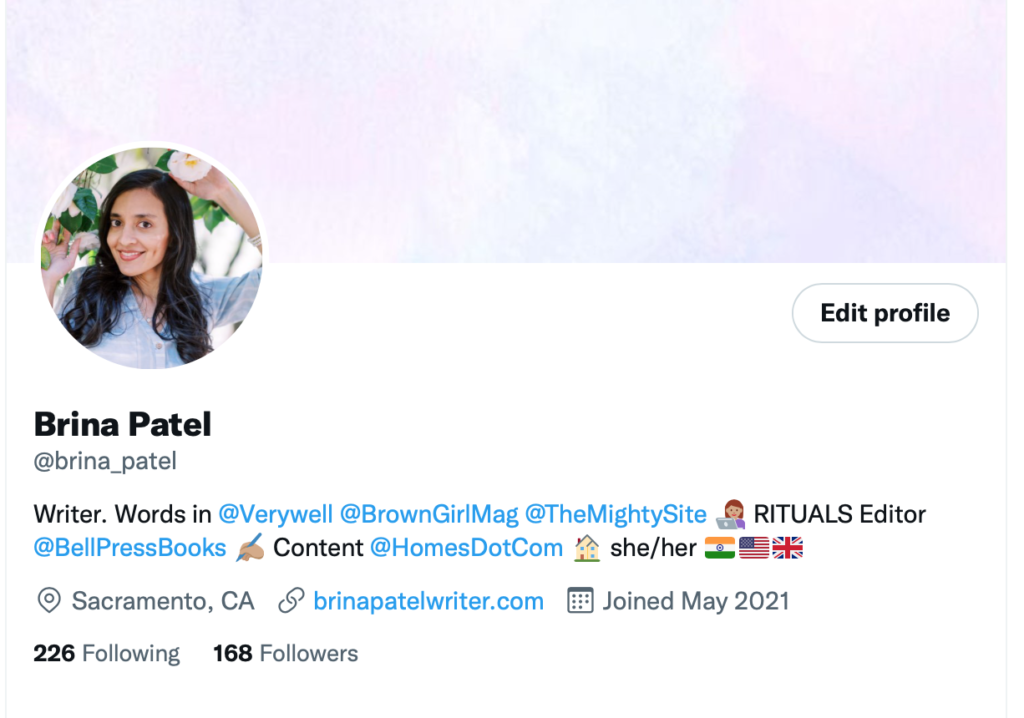
4. LinkedIn
Oh boy, do I have a lot to rave about in terms of LinkedIn. For starters, it’s designed to be an online resumé, but you can connect with other professionals—whom you know personally, whose posts you enjoy, and who work in similar fields as yourself. LinkedIn is there to help you celebrate your professional wins and seek your next position.
Use LinkedIn Learning free for 30 days and take courses in topics you’d like to know more about, i.e. copywriting or email marketing. Linkedin is also the perfect place to conduct your job search, as you can narrow it down based on location, role, type of work (i.e. remote, on-site, hybrid), and experience level. To reap the most benefits, you should put time into making your profile represent you and help you stand out. I recently landed a job with Homes.com through LinkedIn myself!
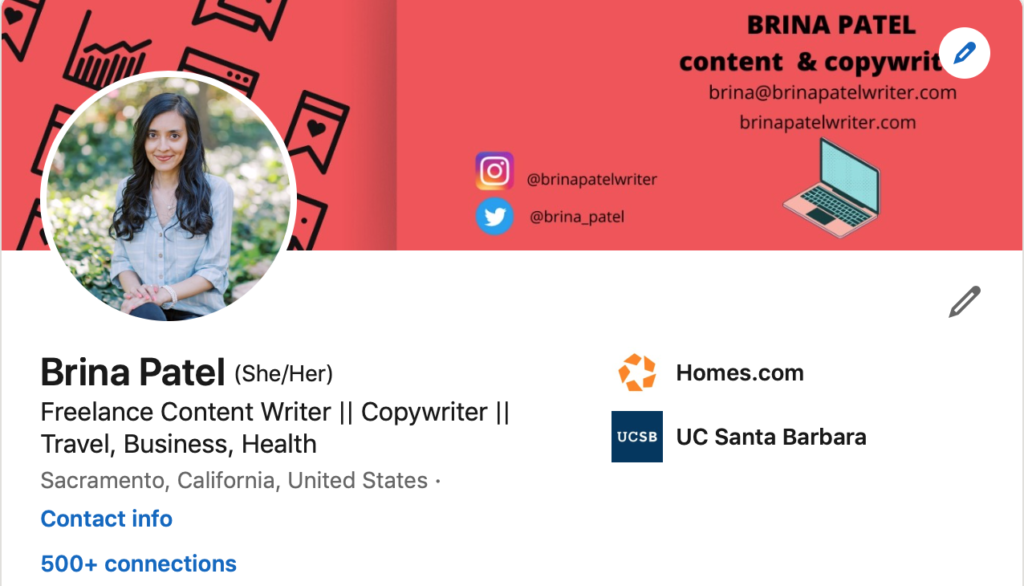
5. Submittable
Alright, so this site skews a bit more toward literary writers. BUT, if you happen to also dabble in fiction, creative nonfiction, or poetry, this is a great place to get your name into a reputable literary journal. You can search for magazines that are accepting submissions and filter based on genre, deadline, and whether or not they charge a fee (I typically go for free ones).
I’ve been using Submittable since fall 2021, and I’ve gotten published in 2 literary magazines and another publication! You have to be patient, as review times can be 6 months or more, and you’ll likely experience waaay more rejections than acceptances. But once you get that special message from an editor saying they accepted your piece, it’s well worth it!
6. Contently
Portfolio, portfolio, portfolio. If you’re serious about being a writer, these are essential! Contently comes to the rescue in making your portfolio-building process quick and relatively painless. The site allows you to also indicate if you’re available for work, and gives you space to describe the services you offer.
Contently also has a select number of paid gigs, but I’ve heard these are hard to snag. I’ve found Contently to be helpful in keeping my best work in one place, which can then be linked into emails when I’m contacting editors or potential clients with whom I’d like to work.
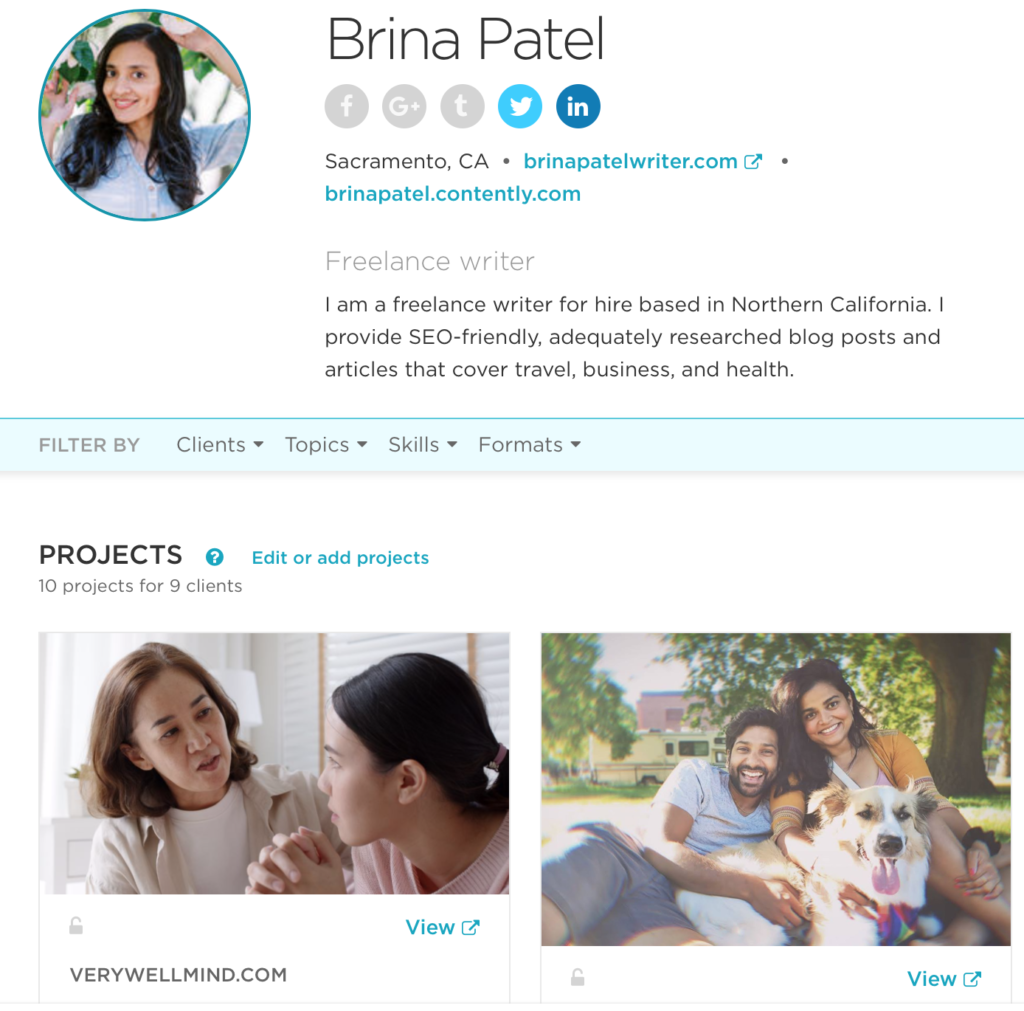
7. Local Writing Groups
Writing is a solitary endeavor, but that doesn’t mean it should always be done alone. In fact, feedback and continued education are as crucial to writing as sitting down and putting words to the page. Most major cities have a writing group to which you can turn when you’re in need of fellow comrades to celebrate, commiserate, or connect with. Try a simple Google search or head to sites like Meetup to find the group that best suits your needs.
Over the past two years, I’ve found my writing group to be paramount in developing my skills as a writer, and expanding my network. If you can, I’d recommend joining a critique group and attending writing-related events!
8. Help A Reporter Out (aka HARO)
As its name implies, Help A Reporter Out was designed to assist writers and journalists in connecting with the sources that will help them tell their stories. For instance, if you’re writing a piece on setting better boundaries and need insights from licensed mental health professionals, HARO can connect you to them! You simply fill out a query outlining your questions or story premise, and list the requirements for potential sources. Then, interested parties will pitch you directly.
I’ve used HARO several times, and am amazed at what a qualified group of people it’s put me in touch with. It’s saved me a lot of time in trying to hunt someone down through social media or personal contacts, and gives me a range of people from which to choose.

9. Grammarly
Nothing kills a thrilling story like terrible grammar. If you have an editor, then you don’t have to worry about self-correcting as much, but if you plan to publish to your own blog or Medium page, it’s best you ensure your work is in the best possible shape prior to publication.
Grammarly is a software you can download and use within Microsoft Word, Google Docs, etc. to spell-check and point out punctuation errors. While it’s not always 100% accurate (it does often point out areas that need no fixing whatsoever), it can flag down careless mistakes and help tighten up your writing.
10. Otter.ai
Transcribing interviews is a huge time suck. I used to spend hours going though audio files, pausing, rewinding, and playing clips to ensure I got the entire conversation down. But then an editor told me about Otter.ai, and you best believe I hopped right on!
This site allows you to upload audio or video files (helloooo, Zoom recordings) and in about 15-20 minutes, it’ll convert them into a script. It’s about 95% accurate, and a basic plan is free. If you have longer files or plan to use the service more option, you can opt for one of their paid plans.
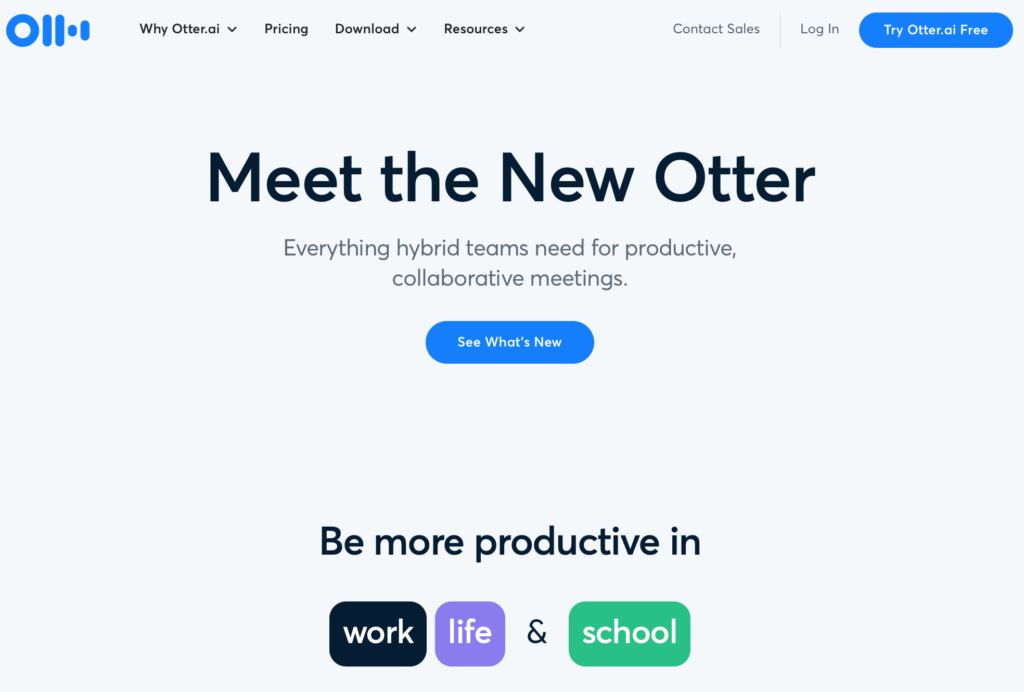
11. Scrivener
I’m a loyal Google Docs gal, but I found that it falls short when it comes to longer book-length projects. If you’re a ghostwriter or working on a manuscript of your own, I’d highly recommend investing in Scrivener. It’s a one-time purchase ($49 if you have a Mac, $45 for Windows), and offers software that organizes your writing without you having to worry about opening up a million tabs or sifting through several folders.
Ever since I started using Scrivener, it’s taken away the headache of sleuthing through my Google Drive and overwhelming my browser. I’m excited to continue using it, especially once I hunker down on my travel memoir!
12. Canva
Graphic design can seem daunting. But with Canva, it’ll become—dare I say—fun! That’s because the site offers hundreds of templates to fit a variety of needs, whether you want to redesign a snazzy resumé, create an eye-catching Instagram post, or make a graphic to embed within a blog post. I use the free version and find that it offers all I could possibly need, but there’s a paid version if you’re in search of a wider array of template options.
Canva is also a remarkable place to design and print your own business cards. I had 50 business cards made for $11, and was pleased that I was able to customize them and play around with various color schemes and fonts before finding the perfect design. Once you get the hang of Canva, you’ll find that it’s hard to live without!
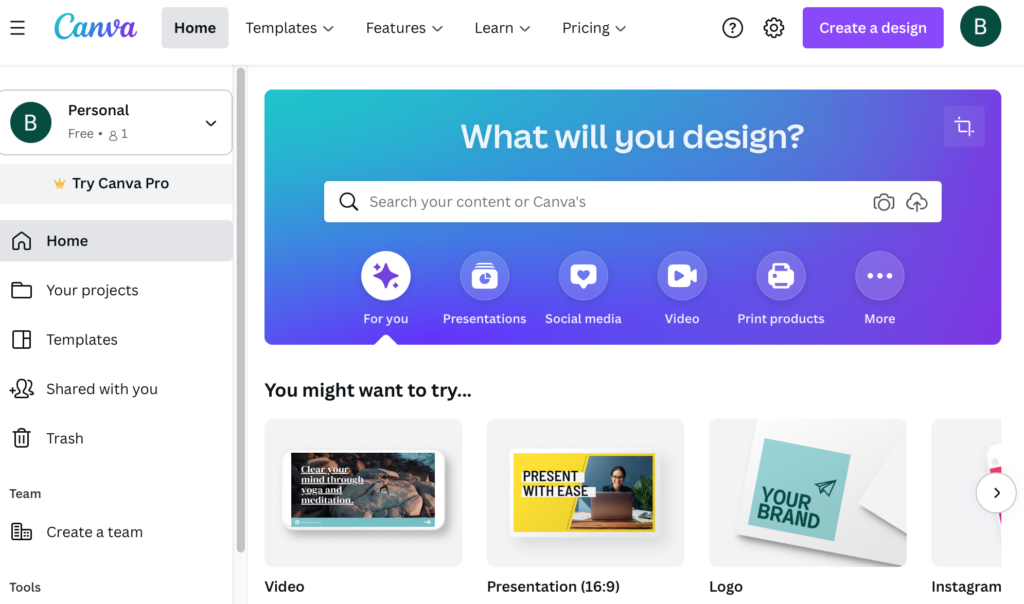
13. MailChimp
And last but not least, I’d be doing a disservice if I didn’t spotlight the importance of building a mailing list. You don’t need to be a New York Times columnist or international bestselling author to have your own mailing list. This is a powerful means by which to establish your credibility, build your brand, and share impactful content with your subscribers.
What you share is up to you and what aligns with your mission, but I’d suggest providing a small update, and then sharing articles, blog posts, and book recommendations from other writers. Here’s an example of my Tuesday Tapestry newsletter. There are tons of platforms to use, but I like MailChimp for its ease of use, and the fact that it’s free for your first 2,000 subscribers.
***
If you’re a novice freelance writer, knowing which sites to trust and which will provide the biggest payoff can be challenging. But take it from me—someone who’s been a guinea pig for the past sixteen months—these 13 resources have been game-changers throughout my freelance writing journey.
When you use them regularly and learn how to take advantage of them, they can provide many returns monetarily, socially, and in regards to your credibility.
Let me know which of these you’ve used and if there are any other sites you’ve found helpful. Best of luck on your freelance writing journey!


